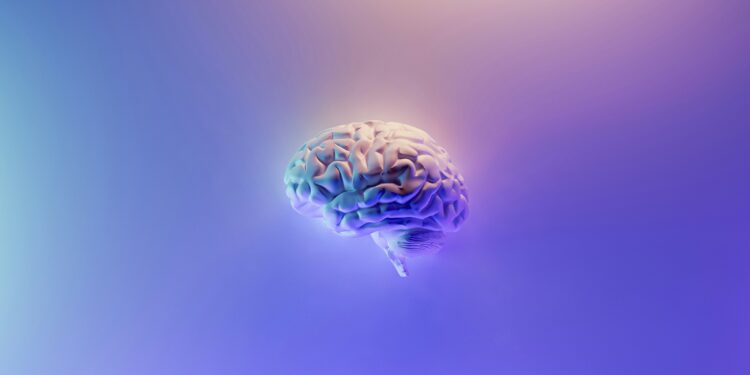Can Casual Gaming Sharpen Cognitive Flexibility? A Deep Dive Into the Brain-Game Connection

Casual games: those accessible, often mobile-based titles like puzzle apps, simulation games, and match-three mechanics have long been considered light entertainment.
However, emerging research from cognitive science and digital psychology suggests that these games may have cognitive benefits, particularly in enhancing cognitive flexibility, the brain’s ability to adapt thinking and behaviour in response to new stimuli, tasks, or challenges.
This article examines recent findings and case studies to ask if casual gaming offers real cognitive benefits. The evidence indicates a nuanced “yes,” with measurable outcomes in areas such as executive function, multitasking, and pattern recognition, especially when compared to non-gamers or players of non-strategic genres.
Key Takeaways
- Casual games can improve cognitive flexibility, particularly in adults aged 18–45.
- The most effective games target pattern recognition, multitasking, and strategic switching.
- Results are most promising with sustained, intentional use, not mindless binge-play.
- While the genre still needs more rigorous research, initial findings support casual gaming’s role in cognitive enhancement.
Why Casual Games Deserve a Second Look
Casual games are everywhere. Whether you’re killing time with a Sudoku app, managing crops in a simulation game, or matching colours in a puzzle grid, casual games have infiltrated daily life. Often dismissed as “mindless” or “time-wasters,” these games have yet to receive the same academic scrutiny as high-intensity action games or immersive RPGs.
But is gaming good for the brain even when it’s casual?
Emerging interdisciplinary studies suggest that casual games may have an overlooked potential to enhance cognitive flexibility. This is a core executive function responsible for shifting attention, adapting strategies, and juggling multiple mental operations.
What Is Cognitive Flexibility?
Cognitive flexibility refers to the mental ability to switch between thinking about two different concepts and to think about multiple concepts simultaneously. It’s an essential skill in learning, problem-solving, and adaptive behaviour.
Psychologically, it’s tied to:
- Working memory
- Inhibitory control
- Task switching
- Emotional regulation
Low cognitive flexibility has been associated with anxiety, ADHD, and poor academic performance, while high cognitive flexibility is linked to better academic achievement, job performance, and decision-making.
The Science: Key Findings from Recent Studies
Several peer-reviewed studies from the last decade have started to spotlight how casual gaming might engage the brain in unique ways:
- A 2016 master’s thesis by Michael Kranz (University of Illinois) found notable improvements in cognitive functions such as working memory and reasoning after 4–5 weeks of adaptive puzzle gameplay.
- Studies comparing gamers to non-gamers have identified enhanced attentional control, faster task-switching, and stronger executive function among those who regularly engage with casual gaming. Boot et al. (2008) examined these differences in Acta Psychologica, concluding that video game experience correlates with improved cognitive performance.
- A 2018 study found that elderly adults who played these games experienced less cognitive deterioration than control groups.
- Another 2020 study also reports that casual gaming elements integrated into learning environments increased learner activity, engagement, and performance improvements.
Importantly, these benefits were not restricted to “hardcore” gamers but were visible even among infrequent players.
Mechanisms at Play: Why Casual Games May Work
Unlike action games that rely on reflexes and precision, casual games emphasise different kinds of thinking:
| Game Type | Cognitive Demand | Examples |
| Match-3 / Puzzles | Pattern recognition, forward planning | Candy Crush, Two Dots |
| Time Management | Resource prioritisation, multitasking | Diner Dash, Good Pizza Great Pizza |
| Word Games | Verbal fluency, lexical recall | Wordle, Scrabble Go |
| Simulation Games | Systems thinking, adaptive strategy | Animal Crossing, Pocket Love |
| Card & Table Games | Probability calculation, risk assessment, adaptive play | Online poker, blackjack, live table games |
These games encourage rapid decision-making under changing conditions, which is an ideal condition for exercising cognitive flexibility. Card-based games, particularly in live online formats, challenge players to evaluate probabilities, recognise patterns, read social cues, and update strategies in real time, making a rich environment for mental agility.
Possible Counterarguments & Limitations
Sceptics raise valid concerns:
- Oversimplification: Critics argue that casual games are too easy to generate deep cognitive stimulation.
- Short-term gains: Some studies find cognitive benefits vanish weeks after game cessation.
- Placebo effect: Enjoyable activities may cause players to feel more cognitively agile even without measurable improvement.
- Genre bias: Many studies lump all “games” together or favour high-action genres.
Further, variables such as duration of play, game complexity, and player engagement level can significantly impact cognitive outcomes.
Mobile Puzzle Games in Daily Routines
Consider a commuter who plays “Flow Free” during a 30-minute train ride daily. Over time, they may exhibit:
- Faster pattern recognition
- Improved task switching
- Heightened spatial reasoning
In aggregate, these changes may reflect meaningful cognitive adaptations—especially when such routines are sustained over months.
Major Players & Industry Movement
Game developers are beginning to recognise cognitive design as a value add.
- Peak and Elevate market themselves as cognitive training tools.
- Nintendo’s Brain Age franchise has targeted mental agility since the early 2000s.
- King (Candy Crush) is part of numerous studies to validate the health impact of its games.
While these efforts are often framed as marketing, they signal a broader recognition of gaming’s cognitive potential.
Real-World Implications
- Casual games can serve as digital brain warmups or cool-down activities.
- They can promote executive functioning without requiring expensive setups.
- Embedding intentional cognitive scaffolding into game design can increase value and broaden appeal.
- Low-barrier games may offer a supplementary tool for clients with executive dysfunction or attention disorders.
Final Thoughts
The question “Is gaming good for the brain?” needs reframing—especially when it comes to casual games. The answer isn’t simply yes or no. It depends on what’s played, how often, and with what intention.
In a world increasingly shaped by multitasking, attention-switching, and mental adaptability, casual games may be the quiet cognitive trainers we didn’t know we needed.
Read Also: 6 Virtual Game Ideas That Make Online Play More Social Than Ever








